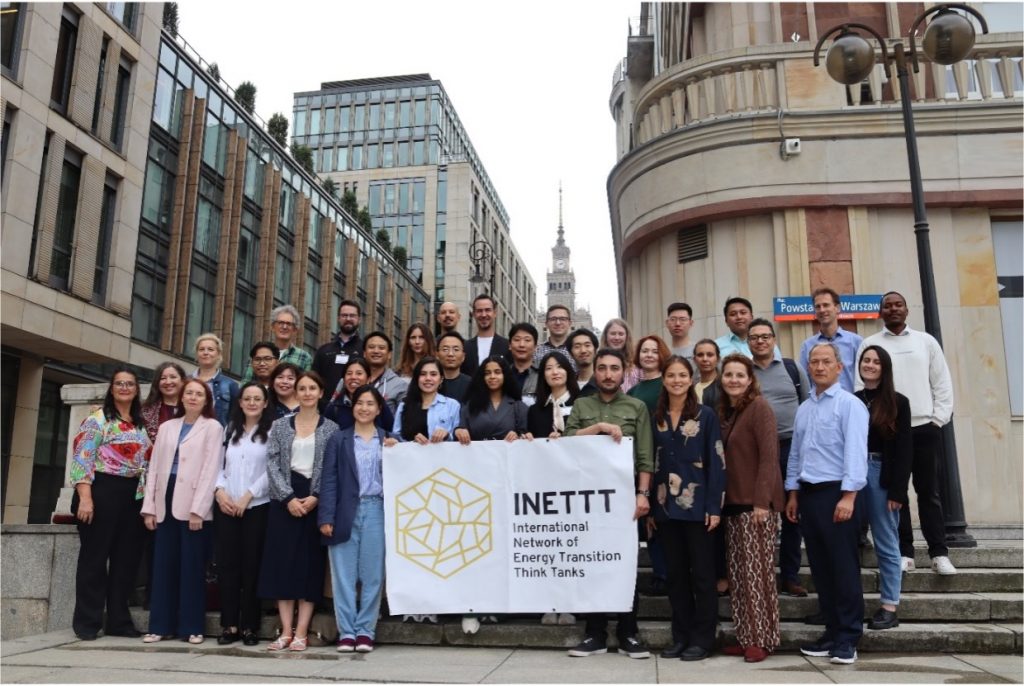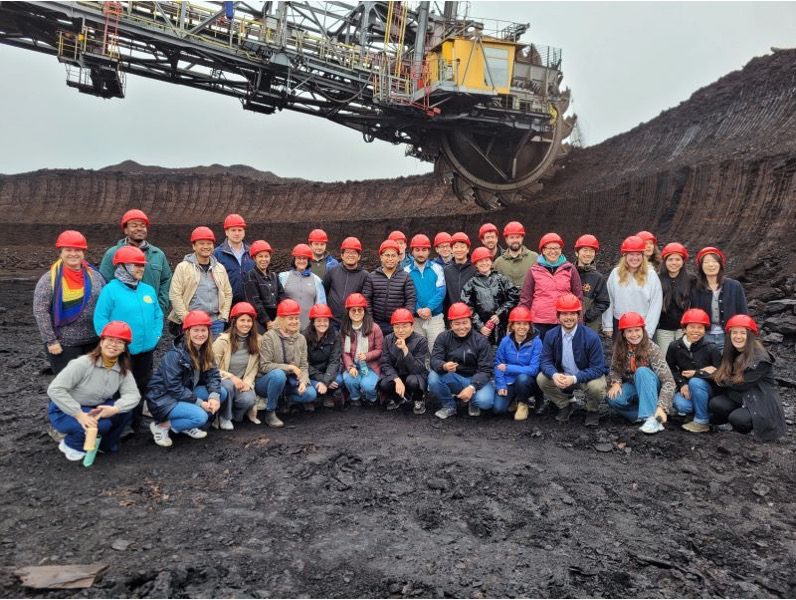A “just transition” is about more than shifting energy systems—it’s about ensuring that the transformation is fair and inclusive and leaves no one behind. As countries around the world strive to meet their climate goals, incorporating a diverse range of perspectives is essential. Decarbonization strategies need to not only curb emissions but also foster equity and opportunity for all. Such an approach is key to achieving mitigation targets, as it strengthens the collective effort needed to reduce and avoid emissions.
Founded in 2020 and hosted by Agora Energiewende, the International Network of Energy Transition Think Tanks (INETTT) unites independent, nonprofit think tanks dedicated to achieving the climate goals of the Paris Agreement and sustainability goals like access to clean and affordable energy. By leveraging global expertise, INETTT provides a trusted dialogue space where members can work together to form strategic positions and policy proposals, accelerating energy transitions around the world.
In September, INETTT representatives gathered in Warsaw, Poland, for the network’s annual meeting and to participate in an international conference that explored ways to advance just transitions in INETTT countries and beyond. Co-organized with and hosted by local think tank Forum Energii, one of INETTT’s founding members, the events of the week brought together think tank representatives from nearly 20 countries as well as Polish and international energy policy professionals to discuss strategies to advance inclusive and effective transitions in the power and industrial sectors.
INETTT bridges global ambition with local expertise. By bringing together energy transition experts from around the world to share skills, experiences, and best practices, INETTT helps facilitate just and effective transitions to climate neutrality by mid-century. – Rabia Ferroukhi, Director, INETTT
An important theme of the meeting was the diverse drivers of energy transitions across different regions. While the impacts of climate change are felt keenly across the globe, regionally specific socioeconomic factors are significant and serve as entry points to climate and energy policy. These include safeguarding energy access, communities, and jobs to ensure a just and equitable transition; the role of public policy, public finance, and political will in shaping the pace and success of policy implementation; and fair trade practices and domestic value added.
Other priorities articulated at the meeting include ensuring security of supply and demand for transition-related commodities, international cooperation, and net-zero commitments to underscore ambitious policy frameworks. Bottom-up action was also highlighted as key, recognizing the economic necessity of transitions for long-term development. Such conversations wove together the technical and socioeconomic aspects of the transition, underscoring the importance of broad stakeholder and community engagement—all the way from policy design to implementation.

Industrial policy can also bolster competitiveness to enhance economic resilience in global markets. INETTT members pooled their expertise on the topic, workshopping and delivering implementable ideas for decarbonizing critical sectors such as steel and chemicals. These included establishing precise and harmonized definitions of “green” products and introducing a comprehensive package of financial mechanisms that target each segment of the value chain—such as carbon pricing or long-term public procurement contracts—to incentivize cleaner production and consumption.
A central question posed during the discussions was: What makes a transition truly “just”? Ensuring fairness and inclusivity, particularly for vulnerable communities and regions reliant on fossil fuels, is essential. Discussions underscored the importance of public support for climate policies, and participants shared insights on how to overcome polarization and address vested interests. One takeaway was that while public appetite for climate action exists in many countries, building trust in renewable energy systems requires clear, timely communication about the benefits of the transition, coupled with targeted support for those who need it.
Poland’s ongoing energy transition served as a real-world case study throughout the meeting, and INETTT members benefited greatly from the expert insights of host think tank Forum Energii, whose work in stakeholder engagement and policy research has helped shape the Polish energy transition thus far. Just the week prior, the country hit a record-low coal share of 50 percent, a major milestone given its long-standing reliance on coal. Looking ahead, dissecting the policymaking process for coal phaseout to address both technical and socioeconomic dimensions for rural and fossil fuel areas will be crucial to ensuring social and territorial cohesion.
Poland’s progress in this regard is being supported through the EU’s Just Transition Fund, which is helping the country diversify the economies of coal-dependent regions, develop renewable energy projects, and reduce coal dependency. One notable success is a solar photovoltaic farm built on land reclaimed from a former lignite mine, which now powers over 100,000 households. The INETTT meeting culminated in a visit to a different lignite power plant—Europe’s largest—providing a firsthand look at the challenges and opportunities involved in phasing out lignite and moving toward cleaner energy sources.

Another key focus was how countries can organize their power systems during the transition, both in liberalized and regulated markets. Insights were shared on the practicalities of coal phaseouts and the importance of flexible and resilient energy systems. A hands-on role-play simulation allowed participants to explore industrial decarbonization strategies from multiple stakeholder perspectives. The exercise explored different options for reducing emissions in energy-intensive sectors like steel and chemicals, emphasizing the need for coordinated efforts between governments, industry, and civil society.
The INETTT annual meeting and international conference on just transitions co-organized with Forum Energii highlighted the importance of international cooperation in driving forward just transitions to climate neutrality. By exchanging experiences and strategies, think tanks from different countries can leverage interdependencies to shape innovative, win-win policies that are not only effective but also equitable. The meeting was a testament to the power of collaboration across borders and sectors in accelerating the global shift toward a cleaner, more sustainable energy future.

